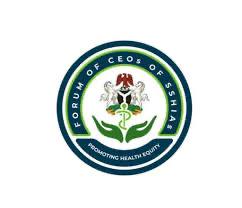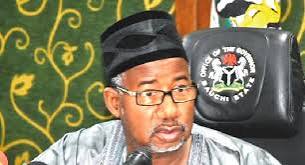Medical experts across Nigeria have come forward to dispel misconceptions about patient referrals, emphasizing that doctors do not “reject” patients but rather make critical decisions to transfer cases requiring specialized care to better-equipped facilities.
Professor Adewale Olusegun, Chairman of the Medical and Dental Council of Nigeria, told KIIN360 in an exclusive interview that patient referrals are a standard medical practice designed to ensure optimal care. “What the public often perceives as rejection is actually a life-saving decision. When a medical facility lacks the equipment or specialists needed for complex cases, immediate referral becomes necessary,” he explained.
The clarification comes amid growing public concern following several reported incidents where patients were allegedly turned away from healthcare facilities. Dr. Ngozi Okonkwo, Director of Hospital Services at the Federal Ministry of Health, stated that such misconceptions can damage public trust in the healthcare system.
“Our medical protocols are clear – no patient in need of emergency care should be denied initial stabilization. However, after assessment, if a doctor determines the patient requires more advanced care than available at their facility, referral becomes a medical necessity, not rejection,” Dr. Okonkwo emphasized.
At Lagos State University Teaching Hospital, Medical Director Dr. Funmilayo Adebisi shared that they receive numerous referrals daily. “We handle many cases transferred from smaller clinics and hospitals. This is how a properly functioning healthcare system works – a network where patients are directed to the appropriate level of care.”
The Nigerian Medical Association has documented that approximately 65% of referrals occur due to lack of specialized equipment, 25% due to absence of required specialists, and 10% due to facility overcapacity issues – none constituting patient rejection in the ethical sense.
Healthcare advocate Chinedu Nwankwo of the Patient Rights Initiative Nigeria emphasized the need for better communication. “Patients and their families deserve clear explanations when being referred. Many misunderstandings arise from poor communication during highly stressful situations,” he noted.
Medical ethicist Dr. Amina Yusuf pointed out that the problem often lies with Nigeria’s healthcare infrastructure. “When basic equipment is lacking or specialists are concentrated in few urban centers, referrals become more frequent, creating the impression of rejection,” she explained.
The experts recommend that patients carry medical identification cards with emergency contacts and relevant medical history to facilitate faster assessments and appropriate referrals when necessary.
Health authorities are now working to establish clearer referral guidelines and improve public education on how the referral system works, with KIIN360 learning that the Ministry of Health plans to launch a national digital referral system by year’s end to streamline the process.
“Understanding the difference between rejection and referral is crucial for maintaining public confidence in our healthcare system,” concluded Professor Olusegun.
Health
Medical Ethics In Practice : Experts Clarify Patient Referral Procedures
- by Adeola Abiola
- April 6, 2025
- 0 Comments
- 2 minutes read
- 31 Views
- 6 months ago







